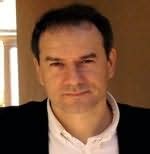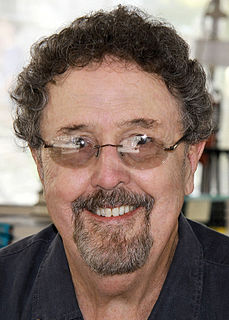A Quote by Julia Cameron
Creativity is always a leap of faith. You're faced with a blank page, blank easel, or an empty stage.
Quote Topics
Related Quotes
Faith is almost the bottom line of creativity; it requires a leap of faith any time we undertake a creative endeavor, whether this is going to the easel, or the page, or onto the stage - or for that matter, in a homelier way, picking out the right fabric for the kitchen curtains, which is also a creative act.
Yes, the fear of its blankness. At the same time, I kind of loved it. Mallarmé was trying to make the page a blank page. But if you're going to make the page a blank page, it's not just the absence of something, it has to become something else. It has to be material, it has to be this thing. I wanted to turn a page into a thing.
Actually, who hasn't been through the ghastly experience of sitting in front of a blank page, with its toothless mouth grinning at you: Go ahead, let's see you lay a finger on me? A blank page is actually a whitewashed wall with no door and no window. Beginning to tell a story is like making a pass at a total stranger in a restaurant.
The enemy is not the badly written page; it is the empty page the great advantage of a badly written page is that it can be rewritten. It can be improved. A blank page is zero. In fact, it’s worse than zero, because it represents territory you’re afraid, unwilling, or too lazy to explore. Avoid exploring this territory long enough, and you’ll abandon your book.





































